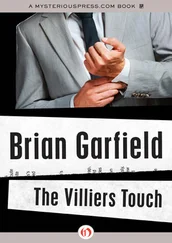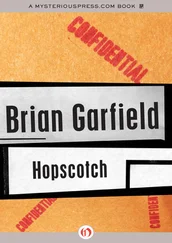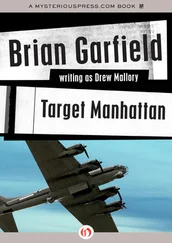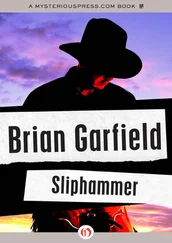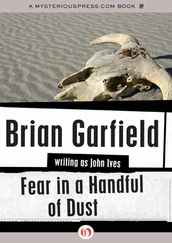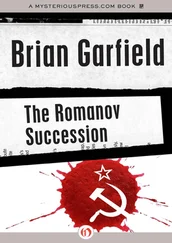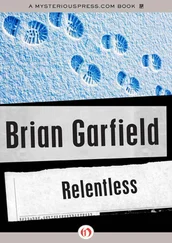Brian Garfield - Kolchak's gold
Здесь есть возможность читать онлайн «Brian Garfield - Kolchak's gold» весь текст электронной книги совершенно бесплатно (целиком полную версию без сокращений). В некоторых случаях можно слушать аудио, скачать через торрент в формате fb2 и присутствует краткое содержание. Жанр: Политический детектив, на английском языке. Описание произведения, (предисловие) а так же отзывы посетителей доступны на портале библиотеки ЛибКат.
- Название:Kolchak's gold
- Автор:
- Жанр:
- Год:неизвестен
- ISBN:нет данных
- Рейтинг книги:3 / 5. Голосов: 1
-
Избранное:Добавить в избранное
- Отзывы:
-
Ваша оценка:
- 60
- 1
- 2
- 3
- 4
- 5
Kolchak's gold: краткое содержание, описание и аннотация
Предлагаем к чтению аннотацию, описание, краткое содержание или предисловие (зависит от того, что написал сам автор книги «Kolchak's gold»). Если вы не нашли необходимую информацию о книге — напишите в комментариях, мы постараемся отыскать её.
Kolchak's gold — читать онлайн бесплатно полную книгу (весь текст) целиком
Ниже представлен текст книги, разбитый по страницам. Система сохранения места последней прочитанной страницы, позволяет с удобством читать онлайн бесплатно книгу «Kolchak's gold», без необходимости каждый раз заново искать на чём Вы остановились. Поставьте закладку, и сможете в любой момент перейти на страницу, на которой закончили чтение.
Интервал:
Закладка:
In forty minutes I’ve got to leave this flat, drop this and the ms in the postal exchange and taxi to the airport. By that time the Canadian may have discovered the theft of his passport but there’ll be time wasted while they question hotel maids before a bulletin goes out, and while the passport details filter through channels to the airport desks. By then I’ll be in another country destroying the passport. I have a scheme for obtaining something more like a permanent valid passport in a new name but it’ll take more time than I’ve got now.
Anyhow they may nail me before I get that far. But I’m giving them a run for it.
If they get me, or if they don’t, I mean to have something to show. Partly it’s sheer rage-the need for vengeance: I want some prominent noses to bleed, I want to blow the whole stinking mess ten miles in the air. And I keep rehearsing Burke’s dictum that the only thing necessary for the triumph of evil is for good men to do nothing.
The manuscript is my act of defiance. I’ve spent every available snatch of time on it. When I’ve had access to a typewriter I’ve used it; the rest of the time it’s been pen and even pencil. As you can see, parts of the thing are scrawled on both sides of scraps of hotel stationery-a mapping of my peregrinations through the fleabags of Asia Minor and Europe.
It’s a very rough draft. I’ve spent no time polishing or cutting. I’m going to ask you and the McKay editors to be my collaborators on this book: not merely polishing the enclosed wretched scrivenings, but doing many things I haven’t been able to do. I can’t carry around with me the contents of my files on the Kolchak and Sebastopol books, for example; they’re still down in Lambertville.
I want you to go down there and burglarize my office. Rick knows you, he’ll let you in; if he balks show him this letter. (Rick-let Jack Ives in.)
By now I’m sure those files have been rifled, possibly more than once, by the buffoon henchmen of my erstwhile buddy from Langley, and maybe by some of the others too. But I doubt they’ve stolen anything, that’s not their style. They’re all trained to take microphotos and leave things as they found them. And even if they’ve absconded with a few items they thought vital, they’ve had no reason to steal the things I want you to get.
You’re going to have to put it together and make a coherent book out of it. In the enclosed ms I’ve had time only to relate current events, together with the pages of transcription of my interviews with two or three people in Israel and elsewhere. For the lay reader to understand all this he’s got to have background. Particularly he needs to know something of the events of the Kolchak years and the events of the Ukrainian disasters during Hitler’s war. I don’t know how you’ll decide to fit it in: in separate chunks or filtered piece by piece as interpolations into the narrative. Either way it must be included in order for this book to make sense; and it must make sense-it must be heard.
In the second drawer of the steel cabinet in Lambertville, in the manila folder marked ‘Kolchak,’ you’ll find the rough draft of my manuscript on the history of the White Russian debacle. It’s quite short; of course it’s far from complete-I’d intended doing further research. But it does cover the ground and it contains quite a bit of history that’s never been published anywhere. You’ll want to take the appropriate portions of the Tippelskirch interviews (transcriptions enclosed with the file) and fit them into the Kolchak document where they belong in the chronology; perhaps those passages should be set off somehow to distinguish Tippelskirch’s narrative from mine.
Unfortunately all my Crimean-based notes on the Ukrainian campaigns were lost before I could get them out of the Soviet Union. I’ve related as much of that information as I can recall; some of it is probably faulty in detail but the drift of it is accurate enough. The key documents I destroyed myself; the only record of those specifications is in my head. That’s mainly why they’re after me.
Both Tippelskirch brothers are beyond anybody’s reach now. I’m the only living link to what they’re after, and I hope to disappear and take my knowledge with me. Doubtless a good many governments are indulging in ecstasies of speculation over its whereabouts, but they’re not going to find it without me.
It sounds shaggy-dog, I suppose. You’ll have to set that right; this is to be my last book and if nothing else it must stir people’s hearts. If there’s indignation left anywhere in the world, we’ve got to seek it out and induce its outcry.
I’m leaving it to you and the McKay editors to select a title; to arrange the organization of chapters and whatnot; to rewrite and add explanatory notes wherever they seem needed; and to find a sensible concluding wrap-up if circumstances don’t permit me to send you further material.
There’s more, but I feel them breathing too close to me. The enclosed is enough for an understanding and I must at least be sure that you receive this much of it.
I wish there were more time. I must run.
As ever.
Harris Bristow
EDITOR’S NOTE
The various narratives which go to make up the body of this volume are all the product of one hand: that of the distinguished and popular historian Harris Bristow, author of nine successful books since 1962, including The Aeneas Scheme (1965), The Nazi Spies (1967), The War in the Aleutians (1969), and the bestselling The Master Spies (1971). It should also be noted that his first book, recently brought back into print in a new hardcover edition, was The Civil War in Russia: 1918–1921 (1962), and that for many years Harry Bristow has been regarded as one of our outstanding authorities on modern Russian military history. (His long article on Marshal Zhukov in the American Historical Review , March 1964, is regarded as a classic.)
The unique circumstances underlying the publication of the present volume-which we sincerely hope will not be Harry Bristow’s “last book”-have left no doubt in the publishers’ minds that the book must be published essentially as Harry Bristow wrote it: that there be a minimum of editorial tampering. We believe this to be one of the most alarming publications the United States has seen since the revelation of the Pentagon Papers by The New York Times , and it has been our feeling that any efforts to “smooth it out” or “polish it up” would merely run the risk of destroying potentially important material. Further, it has always been our policy to make no substantial changes in an author’s work without the express consent of the author.
The obligatory copy-editing has been done, of course, under close supervision of the editors; and we have added explanatory footnotes where it was felt they were needed. We have attempted to follow as closely as possible the instructions in Harry Bristow’s letter to his agent. Beyond that we have taken no liberties with the book. If its organization appears haphazard or arbitrary, that is more the editors’ fault than Harry Bristow’s.
PART I
1
Avast gloomy building stands along the Potomac waterfront in Alexandria. Originally a torpedo factory, it now houses many of the military records belonging to the National Archives. I’ve been familiar with it for a dozen years; masses of research for all my books have come out of those miles of microfilm and documents.
The National Archives is supposed to be a civilian department-our government’s historical librarian-but access to its military records is controlled and limited by the Pentagon. I had my first clash there in the 1960s when I began to compile material for a history of the Aleutian campaigns in World War II. Those campaigns ended in 1943 and the records I sought were twenty-five years old; yet they were locked inside “Classified” cabinets and it took nearly a year before I was able to wheedle the Pentagon into declassifying them so that I could use them for publication. The opposition was not based on argument, merely on bureaucratic inertia; but that made the obstacles all the more maddening, because they were unreasoning.
Читать дальшеИнтервал:
Закладка:
Похожие книги на «Kolchak's gold»
Представляем Вашему вниманию похожие книги на «Kolchak's gold» списком для выбора. Мы отобрали схожую по названию и смыслу литературу в надежде предоставить читателям больше вариантов отыскать новые, интересные, ещё непрочитанные произведения.
Обсуждение, отзывы о книге «Kolchak's gold» и просто собственные мнения читателей. Оставьте ваши комментарии, напишите, что Вы думаете о произведении, его смысле или главных героях. Укажите что конкретно понравилось, а что нет, и почему Вы так считаете.

